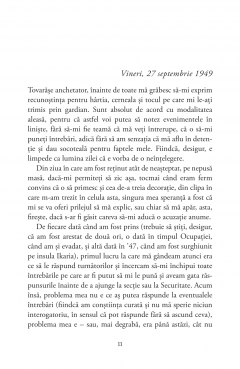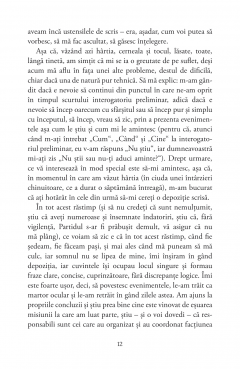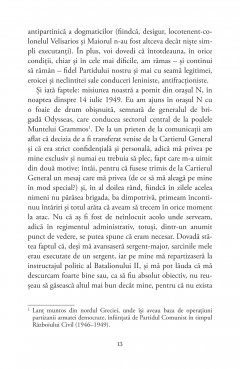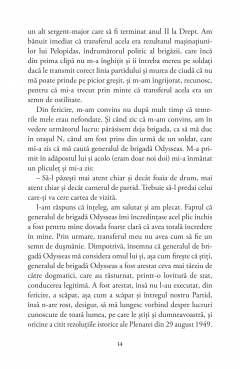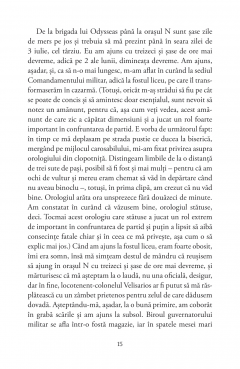Misiunea este romanul unei ideologii goale care decimează suflete și trupuri. Descriind marșul triumfal al Istoriei închise într-un container metalic ce trebuie transportat din orașul N în orașul K, el devine, totodată, un simbol pentru misiunea – și eșecul – scriitorului de a da un sens realității prin cuvintele sale. Fără chip, fără nume și fără istorie, personajul imaginat de Aris Alexandrou împrumută trăsături kafkiene și le transmite istoriei narate. Și cu cât vorbele se îngrămădesc pe pagina depozițiilor lui, cu atât adevărul se îndepărtează mai mult de noi, lăsându-ne la final cu o întrebare chinuitoare: a fost sau n-a fost?
Suntem puși pe urmele unui adevăr care se eschivează încontinuu. Vom ști în cele din urmă care este versiunea corectă? Iar aici intervine o misiune și mai subtilă, cea a autorului: aceea de a ne îndruma sau de a ne abate de la adevăr prin cuvinte.


